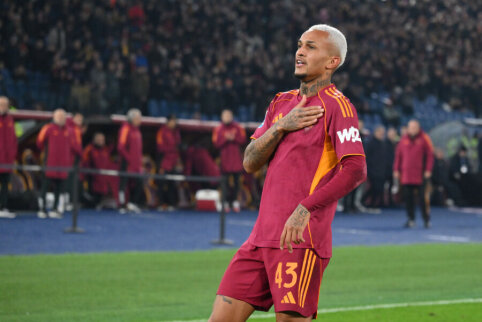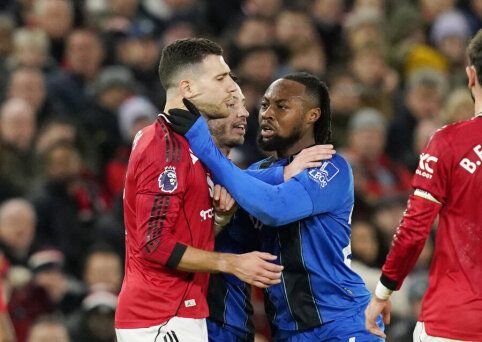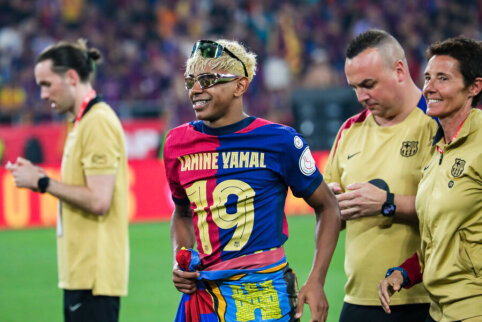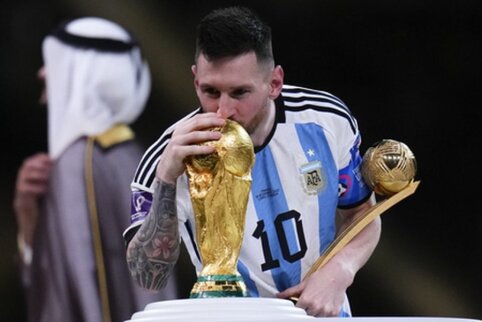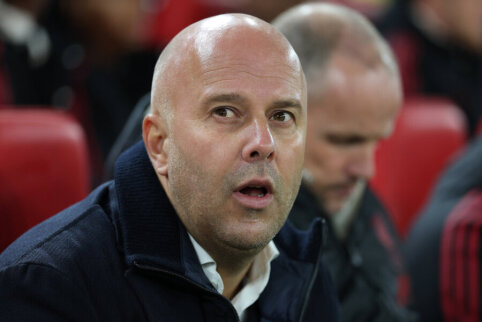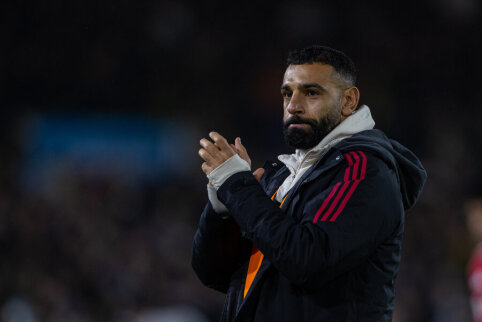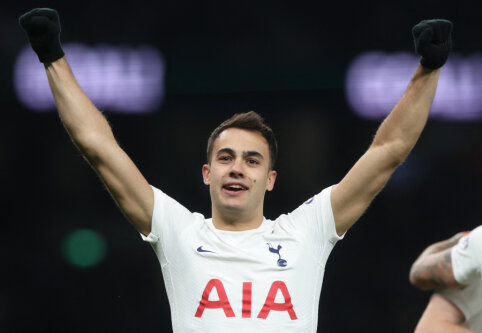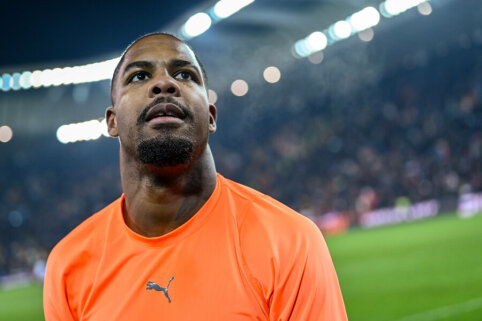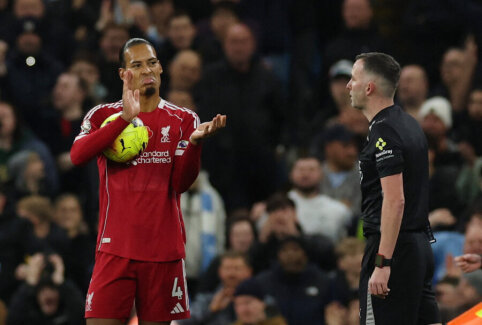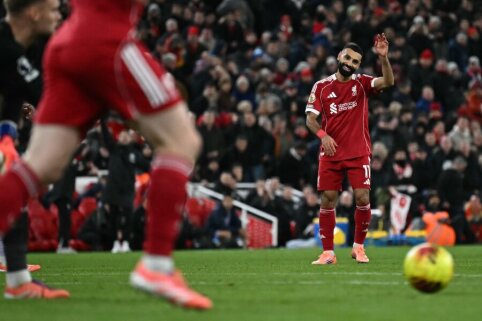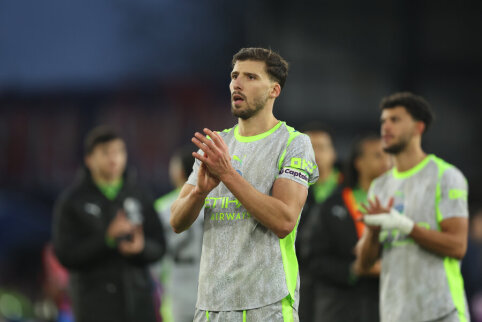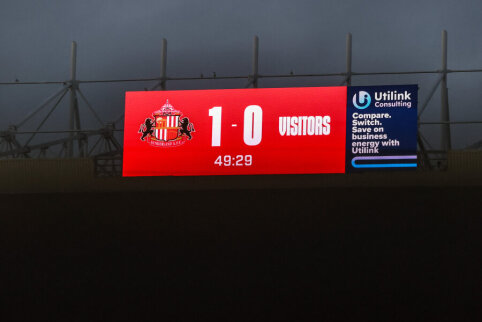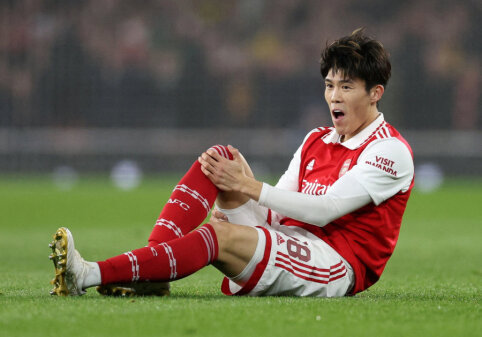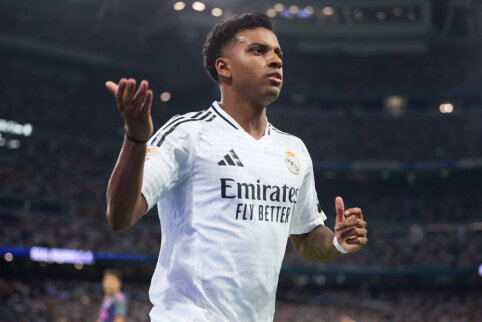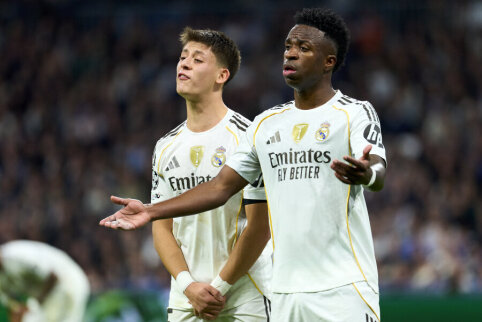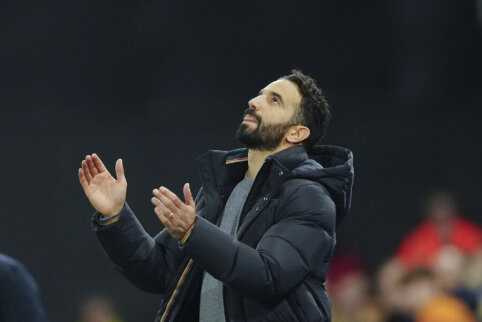 © EuroFootball.com
© EuroFootball.com
After a highly unsuccessful start to the season, for the first time since the start of the Spanish championship in 1928, "La Liga" is seriously threatened with relegation.
First of all, when they hear about Bilbao "Athletic", football fans think about the club's special selection policy: relying only on Basque players. However, some analysts claim that it is precisely because of this selection policy that the Basque club has ended up in the current situation.
Experts argue that a club based solely on players from a small region in northern Spain can no longer compete with teams where the most talented players from around the world play.
In times of intense globalization, trusting only players from one nation, whose population is nearly half the size of Lithuania's, seems like suicide. Some say that one of the most prestigious Spanish teams experienced its glory days when the clubs' ability to rely on foreign players was severely restricted.
In today's era, when victories are most important to fans, the pressure on "Athletic Bilbao" to abandon its traditions and rely on foreigners in order to regain glory is greater than ever.
However, almost 80 percent of the Basque club's fans say they would prefer the club to be relegated to a lower league rather than give up its unique selection policy. For Bilbao club fans, the club's connections to their nation striving for independence are more important than the desire for victories and titles.
Experts say that only unique conditions allow "Athletic Bilbao" to enjoy what no other club could. "Athletic" has become almost a historical symbol of Basque nationalism, so it has a loyal fan base and can afford to behave in a way that no other club would consider.
The situation of "Athletic Bilbao" was most adversely affected by the Bosman ruling adopted nearly a decade ago, which opened the door for clubs to attract the most talented, and sometimes not so talented, foreigners.
This ruling was intended to allow players from European Union countries to move freely between EU clubs, but it later allowed clubs to attract the best players in the world, who easily found ways to acquire EU citizenship.
Although this rule change allowed European clubs to assemble almost "World All-Star" teams, some fans were deeply disappointed: players no longer think about loyalty to the club and its traditions but rather "sell out" to the team that offers the most money.
Football began to be dominated by wealthy and powerful oligarchies, capable of spending enormous amounts of money to acquire players, forcing the weaker ones to fight only for survival.
For this reason, there are increasingly loud calls for certain market economic rules to be restricted for the benefit of football. This should help the most popular sport in the world.
FIFA President Sepp Blatter believes that one solution to the problem is to introduce a minimum of six players from the club's youth academy in the main team. UEFA also supports this idea.
Starting from the next season, clubs participating in European club competitions must have at least two players developed in the club's youth academy, as well as two from other clubs in that country.
Most clubs agree that nurturing local talents is perhaps the only way to survive. This is not only cheaper, but the players who make it to the first team through the club's youth teams are loved more by the fans.
Raul from Real Madrid, Steven Gerrard from Liverpool, Francesco Totti from Roma, and Carles Puyol from Barcelona all enjoy the unique love of their teams' fans simply because they all made it to their main team after proving their worth in the club's youth teams. These examples give hope to children that one day they too can play for their beloved city's team.
Even the leaders of the mighty Real Madrid acknowledge that too much reliance on foreign stars has greatly harmed the team.
The new sports director of Real, Benito Floro, recently stated that the club has lost its identity, so it needs to include "canteranos" (youth academy graduates) in the team to lift the team's spirit.
A couple of months ago, Real's defender Michel Salgado expressed similar ideas, stating that the "Real" "foundation must be Spanish."
Of course, it is not to be expected that in the future a Glasgow Celtic-like achievement will be repeated in the UEFA Champions League, almost 40 years ago when the team made up of players born within a 50-mile radius of Glasgow won the European trophy.
However, remembering local identity should only bring good to both clubs and the sport itself.
If Bilbao Athletic remains in the top Spanish league, it will be proof that even in today's world, it is possible to compete based solely on local players.

